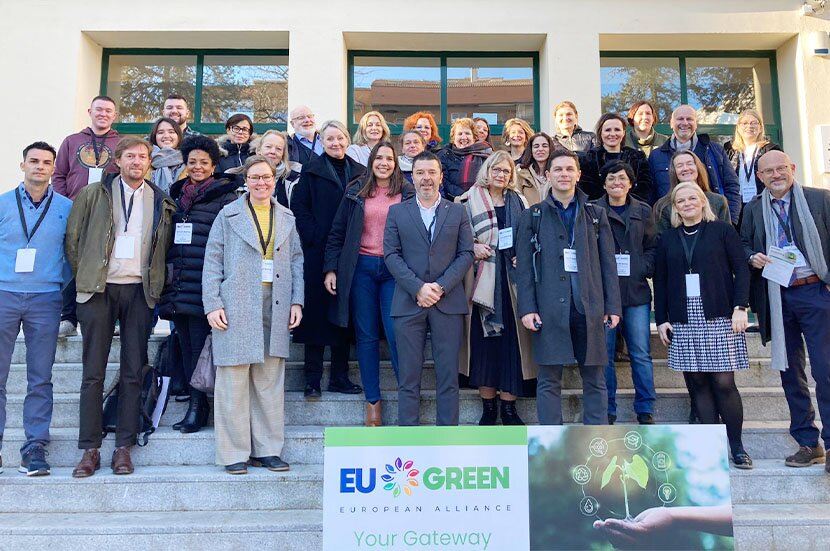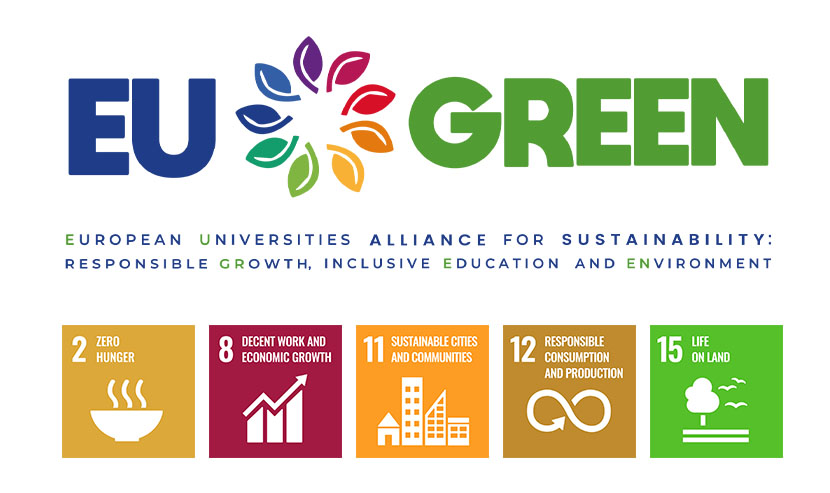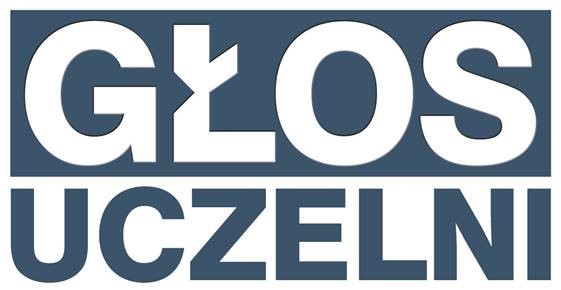
Launching the EU GREEN project
During the kick-off meeting, representatives of nine partnering universities of the EU GREEN consortium launched a project to build and develop joint activities within the alliance. Universities from Ukraine were invited to cooperate – on the initiative of UPWr, representatives of ten institutions, including those from Kiev and Lviv, came to Cáceres.
- In Cáceres, within a week, not only a list of tasks was established, but also the persons responsible for their implementation were selected
- On the initiative of UPWr, representatives of ten Ukrainian universities, cooperating with members of the EU GREEN consortium, came to Cáceres
- Activities involving international student groups and external entities funded by the Erasmus+ program are planned for the summer
- EU GREEN - an alliance that integrates UPWr into the network of European universities
- EU GREEN's main areas of activity
The opening meeting of the university representatives included in the EU GREEN consortium was combined with the celebration of the University of Extremadura’s 50th anniversary. They are the coordinator of the project. Thanks to the efforts of the Wroclaw University of Environmental and Life Sciences, representatives of ten universities from Ukraine also joined the consortium in Cáceres, Spain. UPWr was represented by Rector Prof. Jaroslaw Bosy, Vice Rectors for Internationalization Prof. Anna Chełmońska-Soyta and for Student Affairs and Education Prof. Damian Knecht and the coordinators of UPWr's two tasks in the EU GREEN alliance – Krzysztof Kafarski, Head of the International Relations Office and Dr. Katarzyna Lech-Książkiewicz, Head of the Centre for Student Affairs and Anna Posadowska-Malarz, Erasmus+ University Coordinator, as well as Agnieszka Musik – Head of the Rector's Office responsible for contacts between the offices of the allianced rectors.
People and tasks
– Face-to-face meetings always allow people to get to know each other better, it’s easier to talk and come to conclusions faster. That's why the time spent in Cáseres, the city where the main campus and the rectorate of the University of Extremadura are located, made it possible to agree on many key issues regarding how the project should be managed and implemented – says the Vice-Rector Prof. Anna Chełmońska-Soyta.
So, within a week, the rectors of the universities that form EU GREEN approved the governance structure of the project, identified and approved the rectors’, president’s and vice president of the consortium’s tasks, and also determined the composition and tasks of the senate, student government, general assembly and steering committee, i.e. the most important governance structures.
The opening week was also unique in that 10 Ukrainian universities were invited to work with EU GREEN. The decision was based on the INTERACT project funded by the NAWA program, which provides an opportunity for Polish universities that are members of European universities to invite scientists from Ukraine to partner with them. So far, Polish-Ukrainian scientific and educational contacts have been dominated by a bilateral cooperation model. At the University of Environmental and Life Sciences, however, a different idea has emerged.
EU GREEN show goes on!! Even from those at home!! ????
— EU GREEN European Alliance (@EUGREENalliance) February 1, 2023
Our 9 EU GREEN universities are presenting together -alive- for all their communities. Also...our students came to live the experience all the way from Portugal, Ireland and Germany and catched up with their Spanish colleagues pic.twitter.com/j9wK6D3Slo
Opening up to Ukraine
– Thanks to the work of Krzysztof Kafarski, Head of the International Relations Office, we obtained a project from NAWA, so at the steering committee meeting we were able to ask who among our consortium members worked with Ukrainian universities. It turned out that it was a total of ten universities. That's how the idea that the INTERACT project should be implemented in a consortium emerged, and that these ten universities should be invited to work with alliance partners, which has a much broader appeal compared to bilateral contacts, and is also important for the Ukrainian partners themselves – says Prof. Chełmońska-Soyta, adding that, above all, the presence of Ukrainian guests in Spain allowed representatives of Western European countries to look at the ongoing war in a different way.
The speech by Pro-rector for Internationalization Prof. Ksenia Smyrnov from Taras Shevchenko National University in Kiev was also significant here. During one of the sessions, both terms of spontaneous collaborations within the structure of the year-long INTERACT project, and long-term cooperation after its completion were established.
– During the talks, many practical solutions were given. We will try to work together within the scientific clusters that have been defined by the consortium. That will create the possibility for each Ukrainian university to have its own mentor. At this point, Ukrainian universities will provide us with a list of people who will be able to go abroad, which is not so easy. After all, not everyone can leave the country due to war – says Prof. Anna Chełmońska-Soyta.
From Ukraine, representatives of universities from Kiev, Lviv, Zhytomyr, Uzhhorod and Odessa came to the EU GREEN launch.
Because European values are EU GREEN values.#WeSupportUkraine#WeStandWithUkraine pic.twitter.com/WBJoAQomDt
— EU GREEN European Alliance (@EUGREENalliance) January 30, 2023
Summer of courses and webinars
During the week-long meetings, talks, sessions, and workshops, training in Agile project management methods was also organized, and students presented their ideas for implementing all project objectives. It was also agreed that, thanks to funding obtained from the Erasmus+ programme, this summer Blended Intensive Programs (BIPs) will hold courses, webinars and hands-on activities with students in mixed international groups, organized by various institutions. In addition, of course, the tasks assigned to the various working groups of the project will be carried out – UPWr is the leader in the area of education and the co-leader in the area of mobility and internationalization.
What is the EU GREEN alliance
The EU GREEN alliance was selected by the European Commission in 2022 as one of only four winners of the European Universities initiative across Europe. The EC's decision allowed the nine universities not only to officially start the partnership, but most importantly to secure its funding – that’s more than 14 million euros for 4 years, but there is a possibility of renewing the project for another 4 years. With more than 158,000 students and 18,000 employees, EU GREEN is a European "super campus." It is formed by the University of Gävle (Sweden), the University of Parma (Italy), the University of Evora (Portugal), the Otto von Guericke University of Magdeburg (Germany), the Atlantic Technological University (Ireland), the University of Oradea (Romania), the University of Angers (France), the University of Extremadura (Spain) – the coordinator of the alliance – and the University of Environmental and Life Sciences in Wroclaw (Poland).
Among other things, partners were selected according to the key of implementing scientific research that fit in with the UN Sustainable Development Goals. Based on mapping from bibliographic databases, it was determined which goals would guide the partnership. These are Goal 2: zero hunger, Goal 8: decent work and economic growth, Goal 11: sustainable cities and communities, Goal 12: responsible consumption and production, and Goal 15: life on land. Wroclaw University of Environmental and Life Sciences has already been rated in some of these goals in the international THE Impact Rankings.

EU GREEN's main areas of activity
Each partner is responsible for implementing one of the nine areas, with representatives from each university and external stakeholders (local authorities, foundations, associations) working on each area. During the kick-off, joint goals and a strategy for operating and implementing the project were worked out with partners from Ukraine.
Work Package 1 – Innovative management and coordination of the project
Coordinated by the University of Extremadura (Spain) in collaboration with the Otto von Guericke University of Magdeburg University.
Work Package 2 – An educational model centered on sustainability and the SDGs
Creating a joint educational strategy, integrating the idea of sustainable development into curricula, joint degree programs.
Coordinated by the Wroclaw University of Environmental and Life Sciences (Poland) in cooperation with the University of Evora.
Work Package 3 – Structuring research-based learning through Excellence Clusters
Creating a joint strategy for sustainable development research, supporting interdisciplinary research and international research projects.
Coordinated by the University of Angers (France) in collaboration with the University of Parma.
Work Package 4 – Innovation and entrepreneurship for sustainability
Promoting entrepreneurship, supporting offshoots and partnerships with business regarding sustainable development.
Coordinated by the University of Evora (Portugal) in collaboration with the Atlantic Technological University.
Work Package 5 – Engagement for sustainable societies and economies
Establishing partnerships with external partners (local authorities, NGOs), creating a platform for building community engagement based on the ‘citizen science’ concept.
Coordinated by the Atlantic Technological University in collaboration with the University of Oradea.
Work Package 6 – Fostering mobility and international collaboration in education on sustainability
Increasing the mobility of students and employees, supporting joint international research and degree programmes.
Coordinated by the University of Parma (Italy) in collaboration with UPWr.
Work Package 7 – Access, Diversity and Inclusion
Creating a common policy for diversity and inclusiveness, 'lifelong learning' educational programs, providing inclusive access to education.
Coordinated by the University of Oradea (Romania) in collaboration with the University of Gävle.
Work Package 8 – Building a truly sustainable campus
Developing strategies to implement sustainable solutions on campuses, including providing decent working conditions, reducing carbon and water footprints (sustainable transportation and nutrition).
Coordinated by the University of Gävle (Sweden) in collaboration with the University of Anger.
Work Package 9 – Communication, Dissemination and Impact
Developing standards for communication between partners and e-infrastructure to promote good practices in sustainable development
Coordinated by Otto von Guericke University in Magdeburg (Germany), in collaboration with the University of Extremadura.
kbk, mmj










